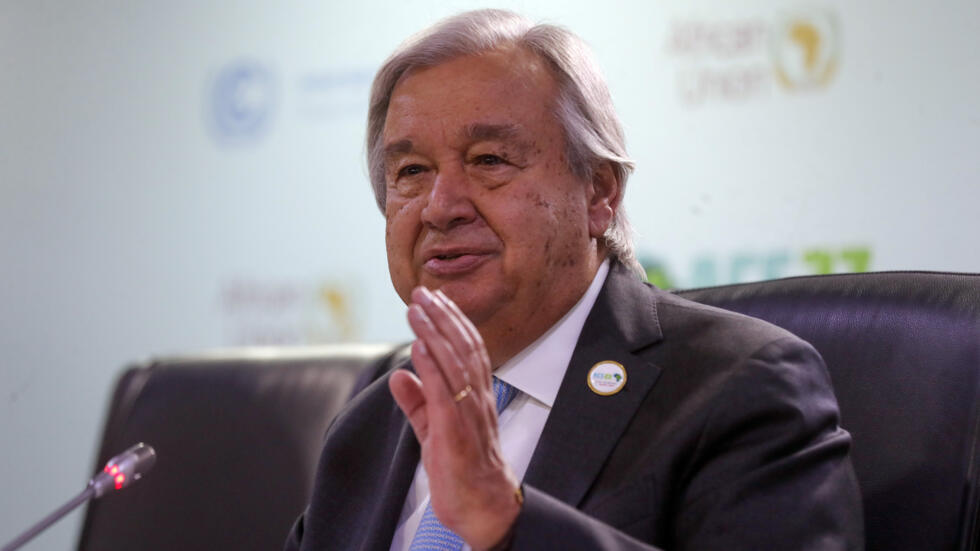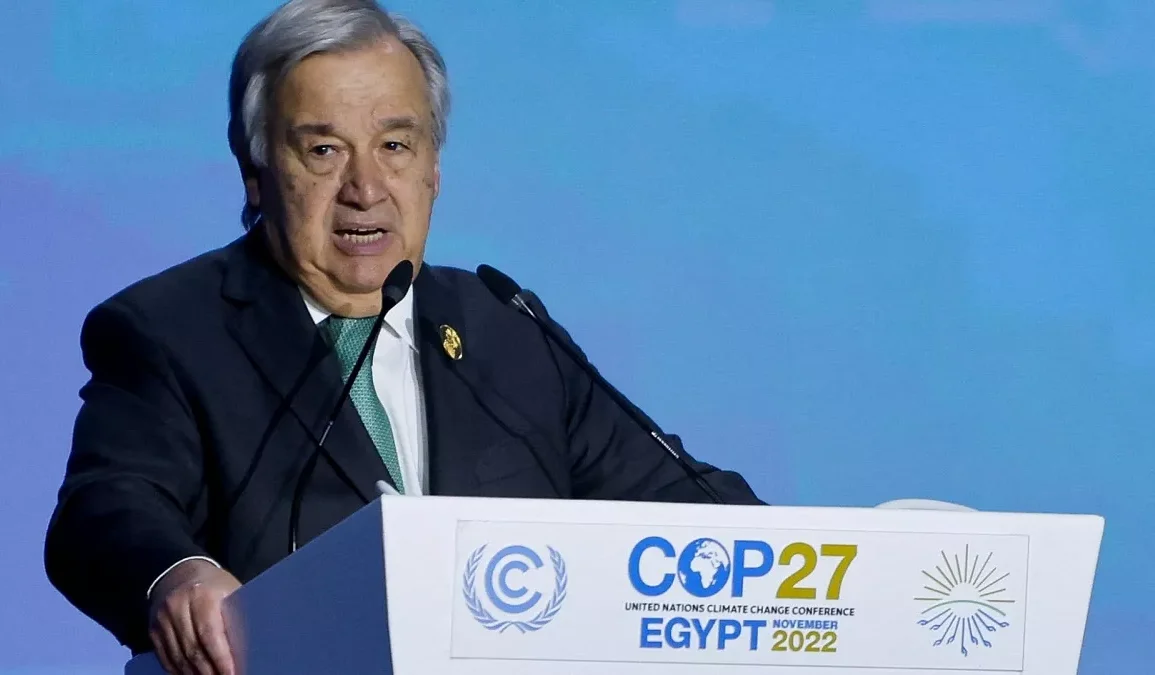UN Secretary General António Guterres has raised urgent warnings about the severe and possibly irreversible threats posed by climate change and ecosystem collapse, particularly in the lead-up to the 29th Conference of the Parties (COP29). According to Guterres, global temperatures are on track to surpass the critical threshold of 1.5°C above pre-industrial levels, risking disastrous tipping points such as the collapse of the Amazon rainforest and Greenland ice sheet.
These shifts could fundamentally alter the planet’s ecological balance. He criticized governments for not making sufficient cuts in greenhouse gas emissions and warned that failure to act immediately could lead to large-scale environmental and societal destruction.
Guterres emphasized the dangers posed by recent natural phenomena, including wildfires, droughts, and extreme weather events, which have exposed the fragility of carbon sinks like forests and soils. In 2023, the record-high temperatures nearly nullified the carbon absorption capabilities of these natural sinks, a crucial aspect of global decarbonization efforts.
Although this may be temporary, scientists worry it reflects deeper vulnerabilities in Earth’s ecosystems. Guterres warned that climate action must be holistic, integrating efforts to protect biodiversity to maintain natural carbon sinks and enhance environmental resilience.
The ongoing climate negotiations are facing challenges around global financial commitments. At upcoming talks in Azerbaijan, nations will debate new funding targets beyond the expiring $100 billion annual commitment.

Disagreements are anticipated over which countries should contribute more, with pressure on wealthy petro-states like Saudi Arabia and the UAE, as well as on China, which some argue should no longer be considered a developing country in climate finance discussions. Guterres refrained from specifying which countries should lead on funding but urged decisive action, particularly on phasing out fossil fuels.
Despite the grim outlook, Guterres remains cautiously optimistic about limiting warming to 1.5°C, though he acknowledged temporary overshoots. Technological advancements in renewable energy and other green innovations make the target theoretically attainable, but he warned that political will remains lacking.
He argued that achieving this goal hinges on governments taking decisive steps to reduce emissions and resist fossil fuel lobbying. Guterres compared the Paris Agreement to a vital organ, stating that while it might survive, repeated blows like another potential U.S. withdrawal could leave it crippled, emphasizing the need for robust international support.
Guterres also criticized the influence of fossil fuel companies on climate policies, arguing that governments must resist pressure from these entities to ensure a transition away from fossil fuels. He called for a complete phase-out of fossil fuels, highlighting the ambiguity in some climate agreements, which he believes enables countries to continue harmful practices.
He noted the distinctions between countries like Saudi Arabia and China, stressing that nations with high GDPs built on fossil fuel wealth have a responsibility to contribute to climate solutions. Guterres reiterated that without urgent and clear actions, humanity is on a dangerous path toward an uninhabitable planet.

